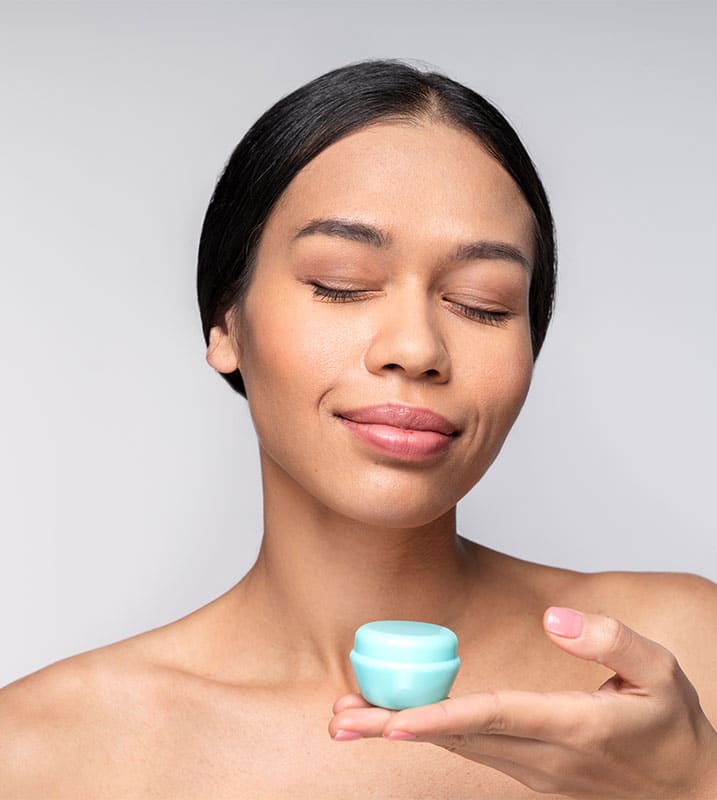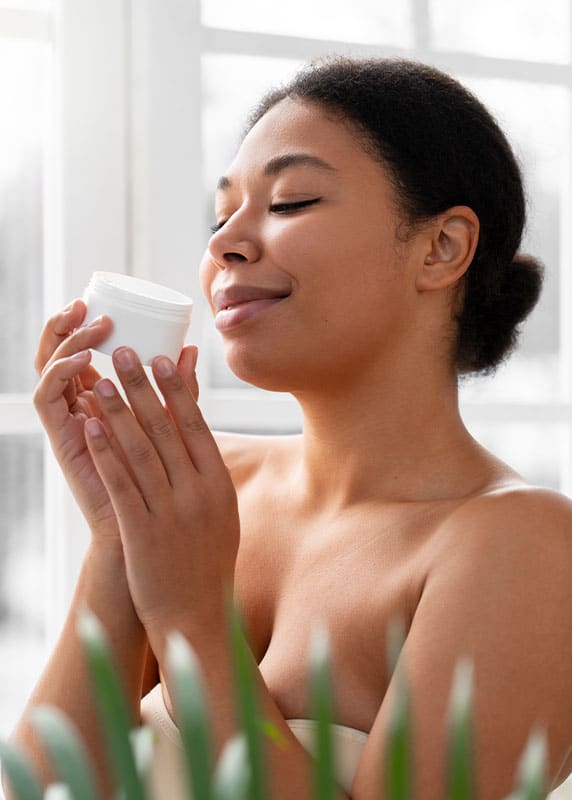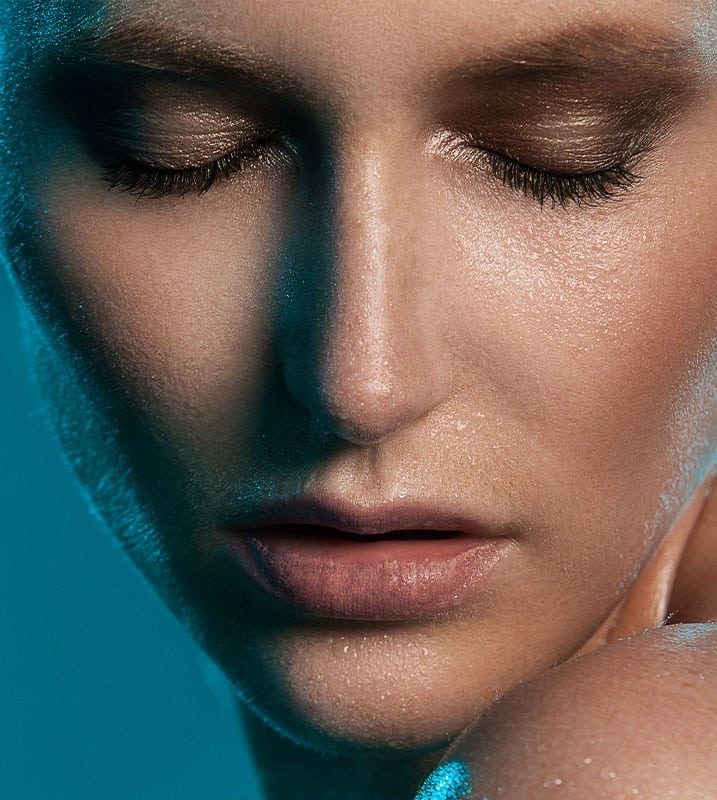Everything You Need to Know About the Difference Between Hydrating and Moisturizing Creams
Everything You Need to Know About the Difference Between Hydrating and Moisturizing Creams
Do you know the difference between a hydrating cream and a moisturizing cream? At first glance, they may seem similar, but their effects on your skin are different. In this article, we’ll explore the key characteristics of both and help you choose the right one for your skin.
Many people assume hydration is only necessary for dry skin, but in reality, just like water is essential for your body, hydration is crucial for all skin types—whether your skin is dry, oily, sensitive, combination, or normal.
But what exactly does hydration mean? Is it the same as moisturizing? With so many creams, oils, and gels claiming to provide “deep hydration,” how do you choose the one that meets your skin’s needs? Let’s break it down.

What Is the Difference Between Hydrating and Moisturizing Creams?
What Is a Moisturizer?
Scientifically, “moisturizer” is a general term that includes different types of moisturizing compounds, such as:
✔ Emollients – Fats and oils that soften the skin
✔ Squalene – A natural oil that mimics the skin’s sebum
✔ Humectants – Ingredients that attract and retain moisture
✔ Occlusives – Ingredients that create a protective barrier to lock in moisture
However, in the skincare industry, the terms “hydrating” and “moisturizing” are often used differently, based on the level of moisture they provide.
Is Water Alone Enough to Hydrate the Skin?
No! Water alone is not enough to maintain skin hydration. Have you ever noticed that your skin feels tight and dry after a shower? This happens because water evaporates from the skin, stripping it of its natural oils.
👉 The more you wash your skin without applying a hydrating or moisturizing product, the drier it becomes.
Hydrating vs. Moisturizing Ingredients
✔ Hydrating Ingredients (Humectants): Attract and retain water in the skin.
✔ Moisturizing Ingredients (Occlusives & Emollients): Form a protective barrier to prevent water loss.
Common Hydrating Ingredients (Humectants):
💧 Hyaluronic Acid – Retains moisture in skin cells
💧 Glycerine – Pulls water from the air into the skin
💧 Aloe Vera – Hydrates and soothes the skin
💧 Honey – A natural humectant that locks in moisture
Common Moisturizing Ingredients (Occlusives & Emollients):
🛡 Shea Butter – Provides deep moisture and nourishment
🛡 Jojoba Oil – Mimics the skin’s natural oils
🛡 Mineral Oil & Petroleum Jelly – Create a barrier to prevent moisture loss
🛡 Beeswax & Lanolin – Lock in hydration and smooth the skin

How to Choose the Right Product for Your Skin Type
Best Moisturizer for Dry Skin
If your skin is naturally dry, flaky, and rough year-round, it struggles to retain moisture. You need a rich, oil-based moisturizer that locks in hydration.
🛑 Best Ingredients for Dry Skin:
✔ Petroleum Jelly (fragrance-free)
✔ Shea Butter
✔ Canola Oil
✔ Almond Oil & Coconut Oil
💡 Tip: Apply a thick moisturizer within 3 minutes of showering when your skin is still damp—this helps trap moisture inside.
Best Moisturizer for Oily Skin
Many people with oily or acne-prone skin avoid moisturizers, thinking they will make their skin even greasier. This is a myth!
👉 When the skin lacks hydration, it produces more oil to compensate. This leads to excess oil, clogged pores, and breakouts.
✅ Solution: Choose a lightweight, water-based moisturizer with non-comedogenic ingredients (won’t clog pores).
💡 Look for:
✔ Hyaluronic Acid
✔ Glycerine
✔ Aloe Vera
✔ Lightweight gel-based formulas
Hydrating vs. Moisturizing Ingredients Table
| Ingredient | Hydrating (Humectant) | Moisturizing (Occlusive) |
|---|---|---|
| Hyaluronic Acid | ✅ Yes | ❌ No |
| Glycerine | ✅ Yes | ❌ No |
| Aloe Vera | ✅ Yes | ❌ No |
| Honey | ✅ Yes | ❌ No |
| Shea Butter | ❌ No | ✅ Yes |
| Jojoba Oil | ❌ No | ✅ Yes |
| Mineral Oil | ❌ No | ✅ Yes |
| Lanolin | ❌ No | ✅ Yes |
| Lactic Acid | ✅ Yes | ❌ No |
| Beeswax | ❌ No | ✅ Yes |
| Ceramides | 🔄 Both | 🔄 Both |
💡 Note: Ceramides are neither strictly hydrating nor purely moisturizing—they help lock in moisture and strengthen the skin barrier.

Which Should You Choose: Hydrating or Moisturizing Cream?
Now that you understand the difference, you may wonder:
💭 Should I use a hydrating or a moisturizing cream?
The answer is both! Hydrating products increase water content, while moisturizing products lock that water in. Most face and body creams contain both humectants and occlusives, meaning they hydrate and moisturize simultaneously.
However, if you want targeted skincare, reading ingredient labels is essential. If your skin lacks water, you need a hydrating product. If your skin loses moisture easily, you need a moisturizer.

Final Thoughts
✔ Moisturizers create a barrier to prevent water loss.
✔ Hydrators draw water to the skin to increase moisture levels.
✔ Dry skin needs rich occlusive moisturizers.
✔ Oily skin needs lightweight, water-based hydrators.
Before reading this article, did you know the difference between hydrating and moisturizing creams? Now that you do, wouldn’t it be best to choose a product that offers both benefits?
Why Choose Mary Beauty Clinic?
At Mary Beauty Clinic, we use the latest facial devices and the finest serums, masks, and lotions made in the UK to provide premium skincare treatments.
🌟 Our services include:
✅ Hydrating and rejuvenating facials
✅ Advanced skin treatments
✅ Premium UK skincare products
📅 Book your consultation today! Contact us or schedule an appointment through the link below.
💎 Mary
🔹 Manager, Mary Beauty Clinic

